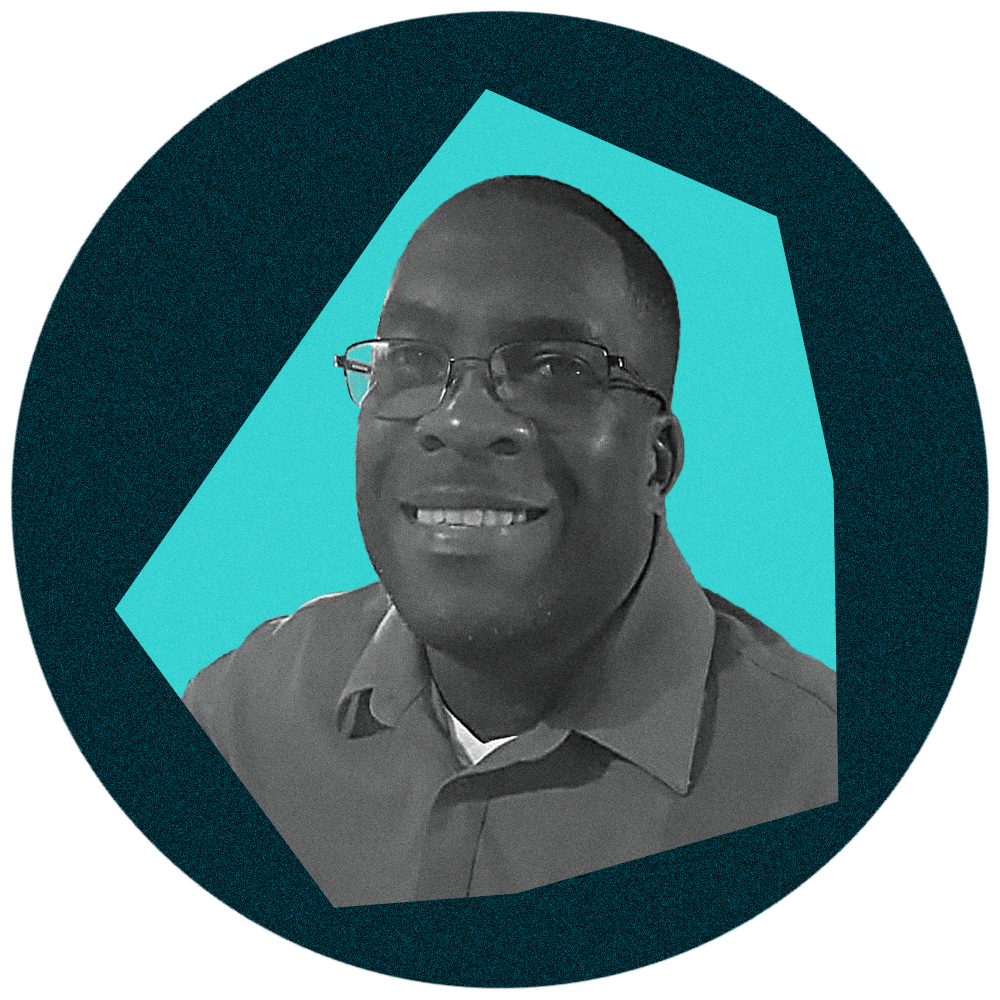
From left: Jomailyn Sanchez AssocRICS, Daluch Chin AssocRICS, Clayton Russell AssocRICS, Tim Kenny AssocRICS
Associate Member (AssocRICS) status serves as an entry point into the industry for those pursuing a career in surveying. It provides individuals with an internationally recognised and regulated credential, and while some may eventually move onto Chartered Member (MRICS) accreditation, that’s by no means mandatory.
Modus spoke to four AssocRICS members from around the world to find out what the qualification means to them and how it has played a role in their careers.

Last year, Jomailyn Sanchez was one of Arcadis’ first ever candidates to achieve AssocRICS accreditation on the company’s programme in the Philippines. She now supports colleagues with their own AssocRICS submissions and is enrolling onto the Assessment of Professional Competence (APC).
Quantity surveying courses in universities and colleges are still not available in the Philippines. As quantity surveying is still not common here, I took a diploma in civil engineering.
I started my career as a rebar engineer. I learned about making detailed estimates of all rebar-related structures, the on-site fabrication processes, and had the chance to get involved with BIM and modeling with Tekla Structures.
A director saw potential in me and I got moved into procurement, then, after several years, I became a cost estimator and learned a lot about valuation, bidding, and client relations. I then landed a role as a quantity surveyor at the Arcadis Global Excellence Center (GEC) based in Manila.
As a surveyor, I am not only an engineer who reads drawings and understands the contracts but can also be a data analyst who can do automation and get into creative graphs and presentations, or a commercial manager who can deal with suppliers and contractors, or maybe a cost planner who does price evaluations.
That is what I wanted after all – the complexity of taking a role that teaches me something new every day about taking significant responsibilities and making bold decisions.
Being one of the first Arcadis general engineering consulting (GEC) employees in the Philippines to take the UK assessment for an AssocRICS qualification showed my colleagues it was possible and led them to follow in my footsteps.
Since becoming qualified, I gained more confidence in working with UK colleagues and clients which has also increased their trust.
Definitely. The demand for surveyors will grow here, especially with our future strategies in the construction industry, and of course, I want to be part of that growth. I also believe that progressing to the RICS chartership will prove that Filipino quantity surveyors are capable and can radiate brilliance by showcasing our talents on a global stage.
Arcadis is very supportive of my APC, and I am incredibly encouraged because of that. I have my counsellor, supervisor and other coaches and mentors from GEC and UK who help me with training and planning my goals for MRICS status.
I would like this career to allow me to continually challenge myself, grow personally and professionally, and make a meaningful impact in this industry. I want to show how I can adapt to global changes and trends to deliver outstanding results to my clients.

Tim Kenny runs his own business, Tim Kenny Surveying, based in the south of England. He has been AssocRICS for 12 years and believes the designation is well suited to surveyors whose jobs are focused on a narrower range of surveying work.
It was an opportunity that came up at just the right time – I was working in a job that I really didn’t enjoy and saw a chance to do something different. If I am honest, I did not have a clue what surveyors did when I first started training!
I’ve seen it suggested before that you should only remain AssocRICS for five years and if you haven’t got MRICS after that, you lose it. There’s a kind of logic to that, in that you want people to learn, progress and gain new skills. But someone who is out doing the job and working full-time might not be able to spend a lot of time training. A good employer will give them the time to do it, but the reality is that’s not always going to happen.
Some see AssocRICS as a step along the route to MRICS. And it can be, but there’s not an obligation to become MRICS once you’ve got AssocRICS. A surveyor who is AssocRICS can have as much depth of knowledge and experience as one who is MRICS, but in a much narrower field.
In the residential sector, most people outside of the profession don’t know about the difference between AssocRICS and MRICS. Ultimately, what matters is we have great surveyors providing a high-quality service.
One of the issues is that if you have a university degree in any subject, it’s easier for you to become chartered (MRICS) than it is for someone who has another kind of qualification in a building, surveying or property-related area.
Degrees are great to have but there are different ways of coming at things. We put a high value on academic skills in many professional environments but plenty of surveyors are coming from a practical background. A lot of what people learned before they joined the profession can be extremely beneficial.

Clayton Russell is a quantity surveyor who has worked on projects across the Caribbean. With more than 20 years’ experience in surveying, he is now technical services manager at the Tourism Product Development Company in Jamaica.
While studying for my A-Levels I was a part-time timekeeper on a construction project. I encountered a quantity surveyor with the bills of quantities and was fascinated by how detailed the document was, capturing the scope of work along with the prices for materials and labour.
I later enrolled at the College of Arts Science and Technology (now the University of Technology) in Jamaica, to study quantity surveying and completed the competency examination of the Jamaican Institute of Quantity Surveyors.
Quantity surveyors are leaders with integrity and ethical behaviour who ought to be trusted. The field of quantity surveying has allowed me to be a member of an elite group of professionals that are the most rounded members of the construction team.
Working on a small island with relatively closed group of professionals does not always lend itself to exposure to the wider world of experience, knowledge and best practices. The AssocRICS accreditation has done just that; by providing access to resources and materials for continuous professional development. The credentials also show potential clients that I am committed to providing services to a higher standard.
It has always been a dream to become a chartered quantity surveyor and be recognised worldwide for the professional standards and quality of service that I would be able to bring to the table.
Being a chartered surveyor would allow me to build a stronger foundation for my family and may even inspire my son to become a quantity surveyor as well. Additionally, I am sure I would have greater access to a wealth of knowledge at the RICS to advance not only my career but those around me.
The government has recently changed the planning laws and allowed for high-rise buildings to be erected – as an accredited quantity surveyor, I have been part of projects changing the skyline of Kingston, the capital of Jamaica.
Having mentored a young quantity surveying intern and see him become the president of the Jamaica Institute of Quantity Surveyors has also been a highlight.

Daluch Chin was part of the CBRE management team in Cambodia and is also a co-founder of LuyBook, an online platform for personal financial literacy. She is now studying for a master’s degree in finance in Australia.
I became a surveyor through my initial interest in real estate and finance. After completing my bachelor’s degree, I pursued an internship in the valuation and advisory department at CBRE Cambodia. I worked closely with experienced surveyors, gaining hands-on experience and refining my skills. Following the internship, I joined the team full-time as a surveyor.
I actively sought opportunities to further my education in real estate, eventually obtaining the AssocRICS qualification. This combination of education and practical training prepared me for a career in surveying.
Because I have always been fascinated by the built environment and the role it plays in our lives. Surveying allows me to apply my skills to unlock value for clients and assist them in making well-informed financial decisions, which is both professionally rewarding and personally fulfilling.
It serves as a testament to my competency and dedication to the surveying profession. It has significantly enhanced my credibility with clients and employers, paving the way for new opportunities for career advancement and professional growth. Until recently, there were only a handful of real estate professionals in Cambodia with an RICS qualification, and none were women.
Additionally, it has provided me with access to a vast network of industry professionals, allowing me to stay updated on the latest developments in the field.
Yes, MRICS status is widely recognised as the gold standard in real estate, and achieving this status will further enhance my professional standing and open up new opportunities for career advancement and specialisation.
I am passionate about real estate and also have a strong interest in investment and finance. After working in real estate valuation for five years, I am currently pursuing a master's degree in finance in Australia to further develop my knowledge in investment and finance to build on my background in real estate.
Ultimately, I aspire to work in real estate investment, and I believe that my surveying career will play a crucial role in achieving this goal.
MODUS
Modus staff 25 April 2024